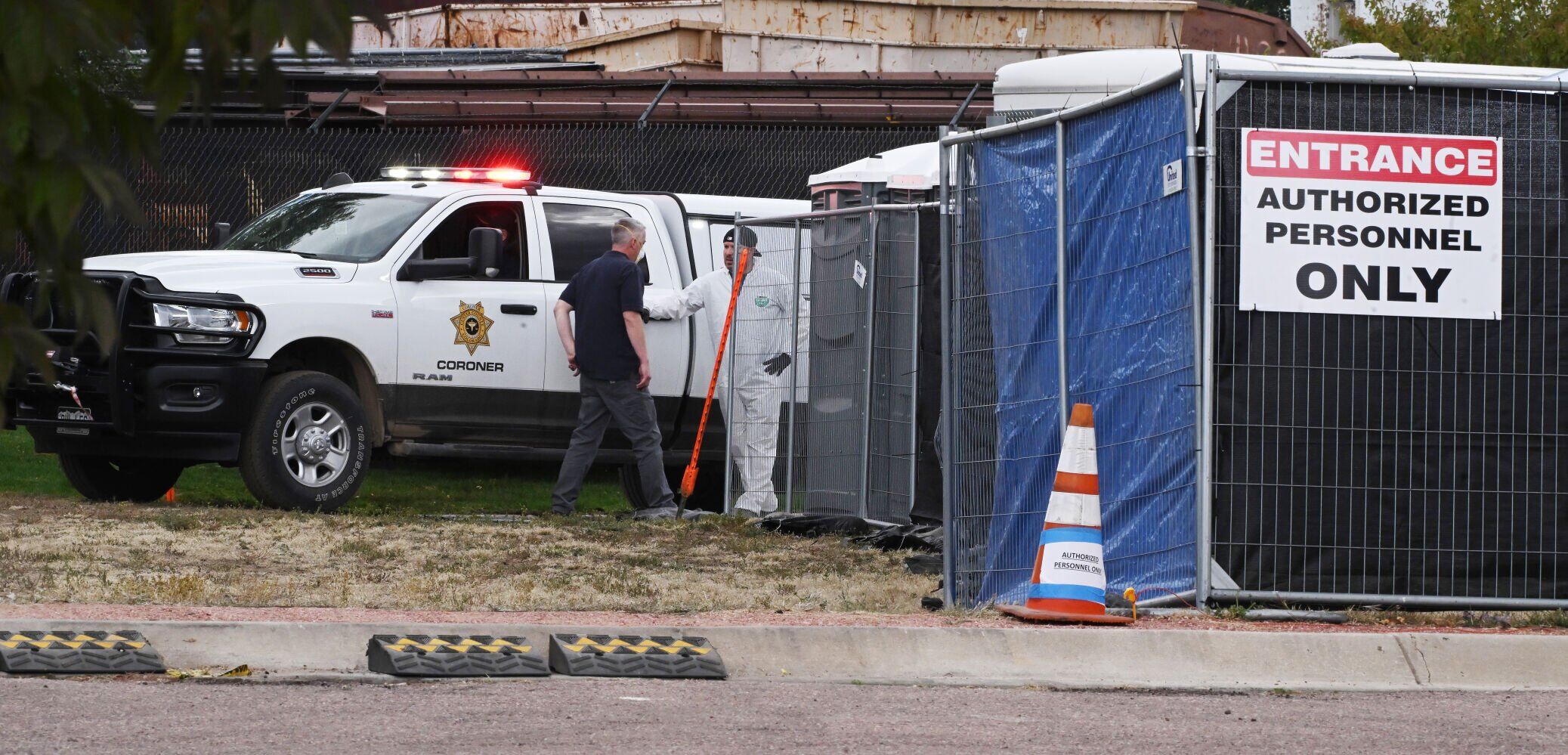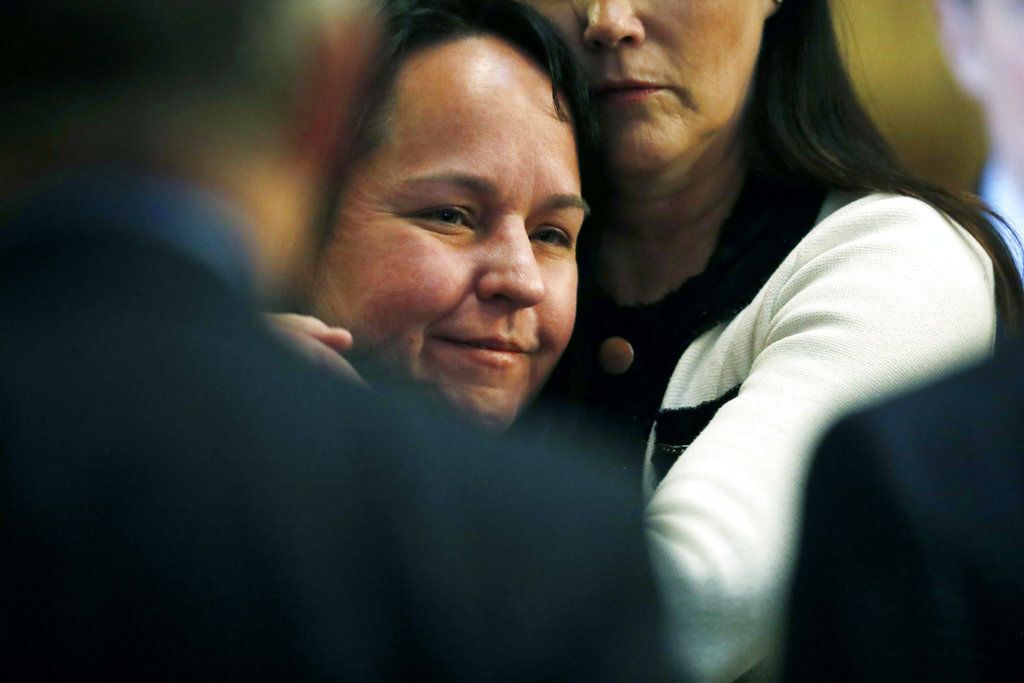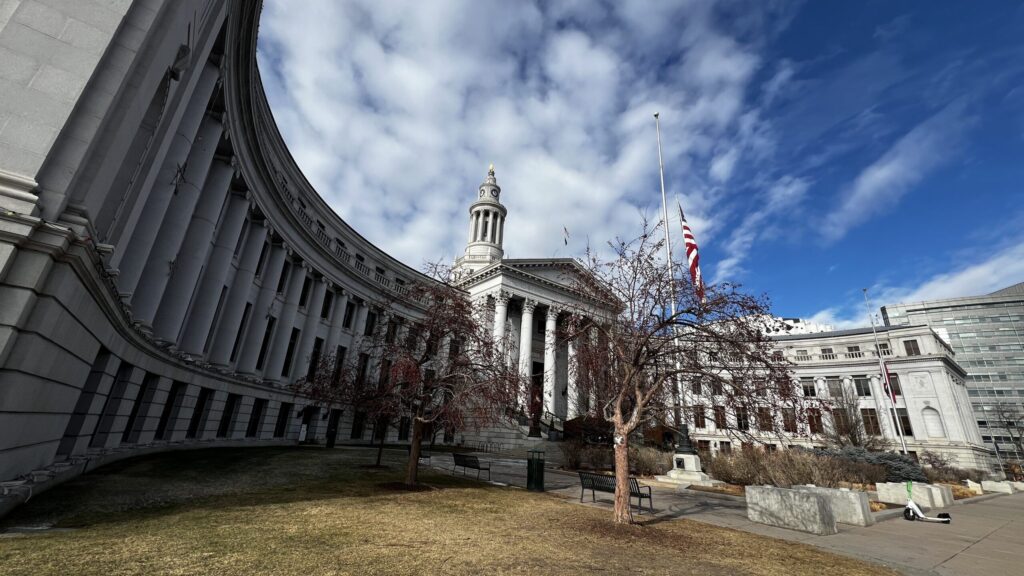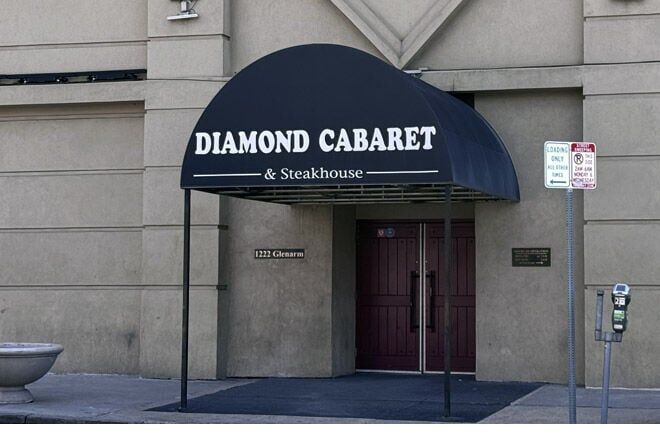Colorado lawmakers under pressure to regulate funeral industry after urns, body found in Denver home

Lawmakers at the state Capitol face increasing pressure to develop policies to get the funeral industry back under more stringent state regulation after the discovery of cremains and a body left in a hearse in Denver last week.
The incident marks the latest in which authorities said the bodies or remains of people had been improperly stored by funeral homes or individuals who work in the industry.
Lawmakers are preparing three bills, which should surface within the next few weeks.
The first bill will be tied to a sunset review of the funeral home and crematorium industry. The House Business Affairs & Labor Committee is scheduled to tackle that sunset review on Wednesday. Lawmakers are likely to decide on legislation enacting the recommendations of the review during the hearing. Rep. Matt Soper, R-Delta, is expected to carry those proposed changes.
According to the report from the state’s Office of Policy Research and Regulatory Reform, part of the Department of Regulatory Agencies, some 220 funeral homes and 77 crematories are registered under DORA’s Division of Professions and Occupations.
The sunset review noted that, during fiscal year 2021-22, the office received 46 complaints against funeral homes and four against crematories. The director took six disciplinary actions against funeral homes in that same time period.
The sunset review recommended that the statute governing funeral homes and crematories be extended until 2031.
But the review also included recommendations that reflected some of the scandals at two funeral homes and crematoriums in the past several years.
In 2018, a funeral home in Montrose was shuttered and its owners were sent to prison for selling body parts. Late last year, 189 bodies were found improperly stored at a funeral home in Penrose. The facility’s owners, who originally came from Oklahoma, now face trials on 260 felony charges.
The state mortuary code outlines who can “lawfully” hold the title of funeral service director or several related occupations, and while it requires a certain level of experience, it does not require licensure, training or any other education in the profession.
State regulators have repeatedly rejected calls for licensure of funeral service practitioners and employees. Efforts by lawmakers in the 2000s failed to put those concerns into state law after the legislature deregulated the industry in the 1980s. The closest was a measure in 2006 on licensure that passed the General Assembly but was vetoed by Gov. Bill Owens at the behest of DORA and major players in the funeral home industry.
The sunset report recommended that the director of conduct “routine periodic” inspections on funeral homes and crematories, “as well as when a funeral home or crematory ceases operations.”
Current state law allows inspections by DORA “on their own initiative” or when there’s a complaint, a relatively new regulation that came out of legislation in 2022 in the wake of the Montrose funeral home incident. In that case, Megan Hess and her mother, Shirley Koch, were both sentenced to prison for selling body parts out of their Montrose funeral home.
The Colorado Funeral Directors Association is once again advocating for licensure, as well as training and education, for funeral service employees. The association has been asking for licensure and professional training for funeral service employees for at least 16 years.
“We unfortunately realized it would take an event like [Penrose] to happen” before the state would take another look, Joseph Walsh, executive director of the association, said last October. “We thought Montrose would have done it, but that resulted in minor things.”
The licensure requirement will be the second bill, also under Soper’s wing, which is expected to be introduced sometime after the sunset bill.
The bill will include recommendations from a sunrise review — that’s when the Office of Policy Research and Regulation looks at a profession with an eye toward regulation — that was requested by the Colorado Funeral Home Directors Association last year.
Soper told Colorado Politics the bill would require funeral directors, crematory operators and morticians to be licensed, using national standards.
There will be different requirements for education and continuing education, which Soper indicated is a key provision. An individual would be required to go back and take a class, not unlike the continuing education for doctors and lawyers. Included in that continuing education are funeral home ethics, knowing the state’s mortuary science code and other state laws, and how to interact with families.
“What we’ve seen in the last few years is not just an abuse of corpse issue, but it’s also a mortuary science issue, where funeral directors are not storing bodies at the proper temperature,” Soper said.
There have been other issues that indicate a failure to adhere to standards, he said, adding, “That’s a constant reminder of best practices and best behavior for a professional.”
Soper said the bill is being driven by the funeral home industry, which he said knows it has two black eyes over the scandals of the last several years.
Soper pointed out the 2022 legislation allowed DORA to do inspections once it receives a complaint but that, before that, funeral home directors could turn away state investigators.
In less than two years, Soper pointed out, DORA investigated 20 cases, finding major violations of abuse of corpses or the mortuary science code, contained in the sunrise review.
In a case resolved just last month, a person advertising himself as operating a crematorium actually used the address of a residential home in Denver as the business address or used a mailbox service.
The owner, Chris Burns of Burns-Curl Cremation and Funeral Services, didn’t live in Colorado. He admitted he lived in Illinois and ran an online business, where he farmed out crematorium services to third-party contractors.
A man who lost his brother in May 2020 tried to find his brother’s ashes and, after three years of searching, complained to DORA.
“I have spoken to the person Don from ABT Cremation who confirmed his cremation and was told Chris Burns had signed out his ashes. He mentioned this guy is hard to reach, so I called the number given to me which was Burns Curl Funeral Home and they would not answer with a hello but I received a text asking what they can help me with,” the man said in his complaint.
The man said he explained his situation and “was told I had the wrong number.” He conduced some research and said he learned Burns “never had a facility.”
“It sounds like there are other families he must have done the same to. I’m requesting information on where Mr. Burns placed my brother’s remains and I hope the State of Colorado can help with that,” the man said.
Records did not indicate if the man ever got his brother’s ashes.
The final agency order for Burns-Curl was issued on Feb. 12. The company’s license to operate in Colorado was revoked.
The third bill, which is likely to be sponsored by Rep. Brandi Bradley, R-Roxborough Park, will deal with the business side of selling body parts, which was part of what happened in the Montrose incident.
Former state Rep. Debbie Stafford ran bills for the mortuary science industry for seven years, beginning in 2002, and that was the primary focus of her legislative work, she told Colorado Politics.
She started pushing those measures after 32 years in the ministry, which included officiating services. She still officiates at two to four funerals per week, she said.
After winning her first election, two funeral directors, including John Horan, came to her and told her about the problems in the industry.
The issue caught fire in 2002, when 350 bodies were discovered at a funeral home in Georgia. Horan and Stafford flew to Georgia, and she began carrying bills afterward.
Her bill was the one vetoed by then-Gov. Bill Owens in 2006.
“Our state’s oversight has no teeth,” Stafford told Colorado Politics. “DORA can explore, but there hasn’t been the political will to confront the situation until it’s so serious that it hits a criminal level.”
Stafford also said there’s one issue that’s being overlooked — making sure there is support for the mental health care of funeral workers.
“We talk about providing support for first responders” or other health care workers, but there should also be support for people doing afterlife care, she said.












